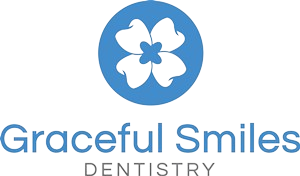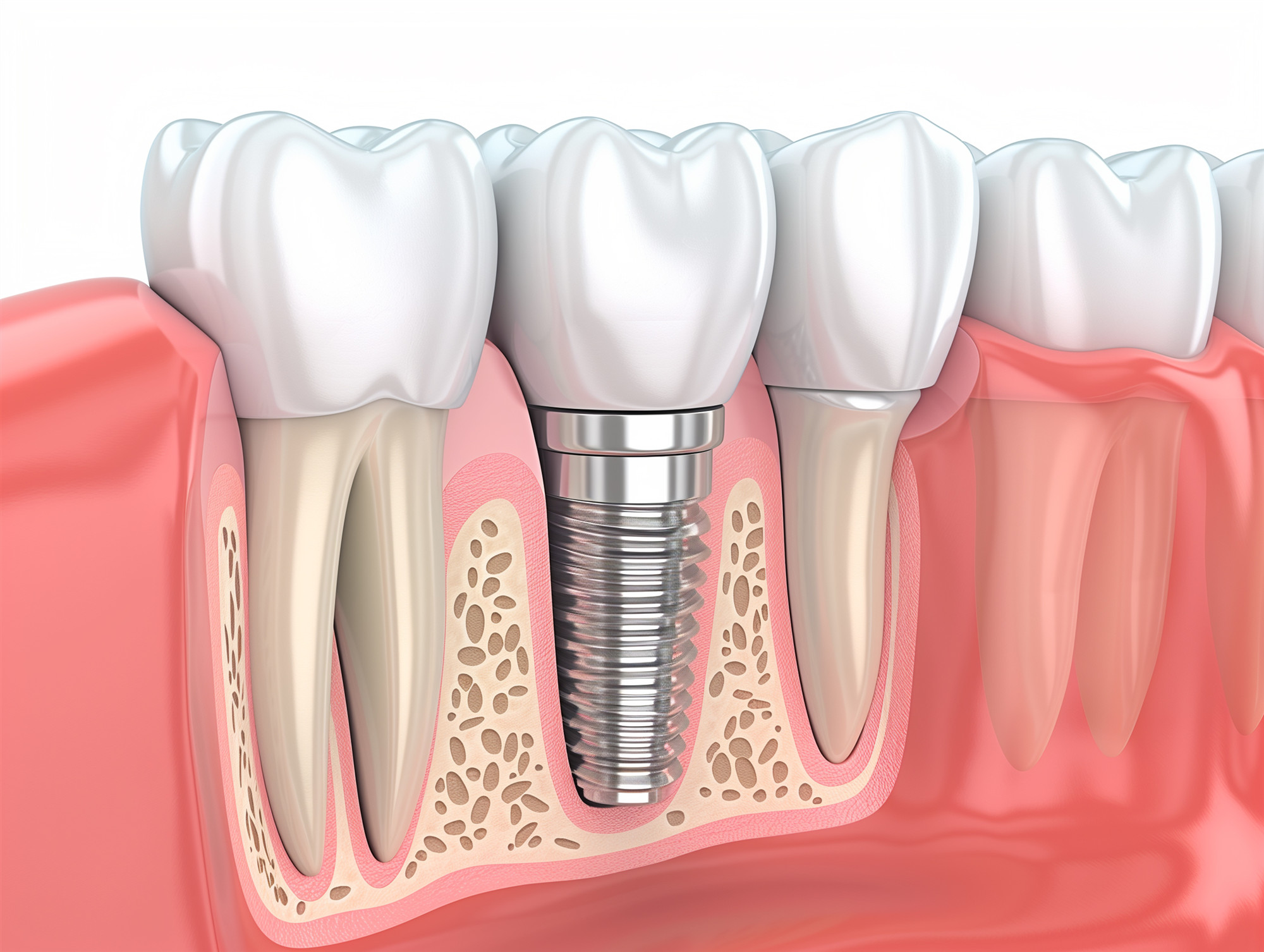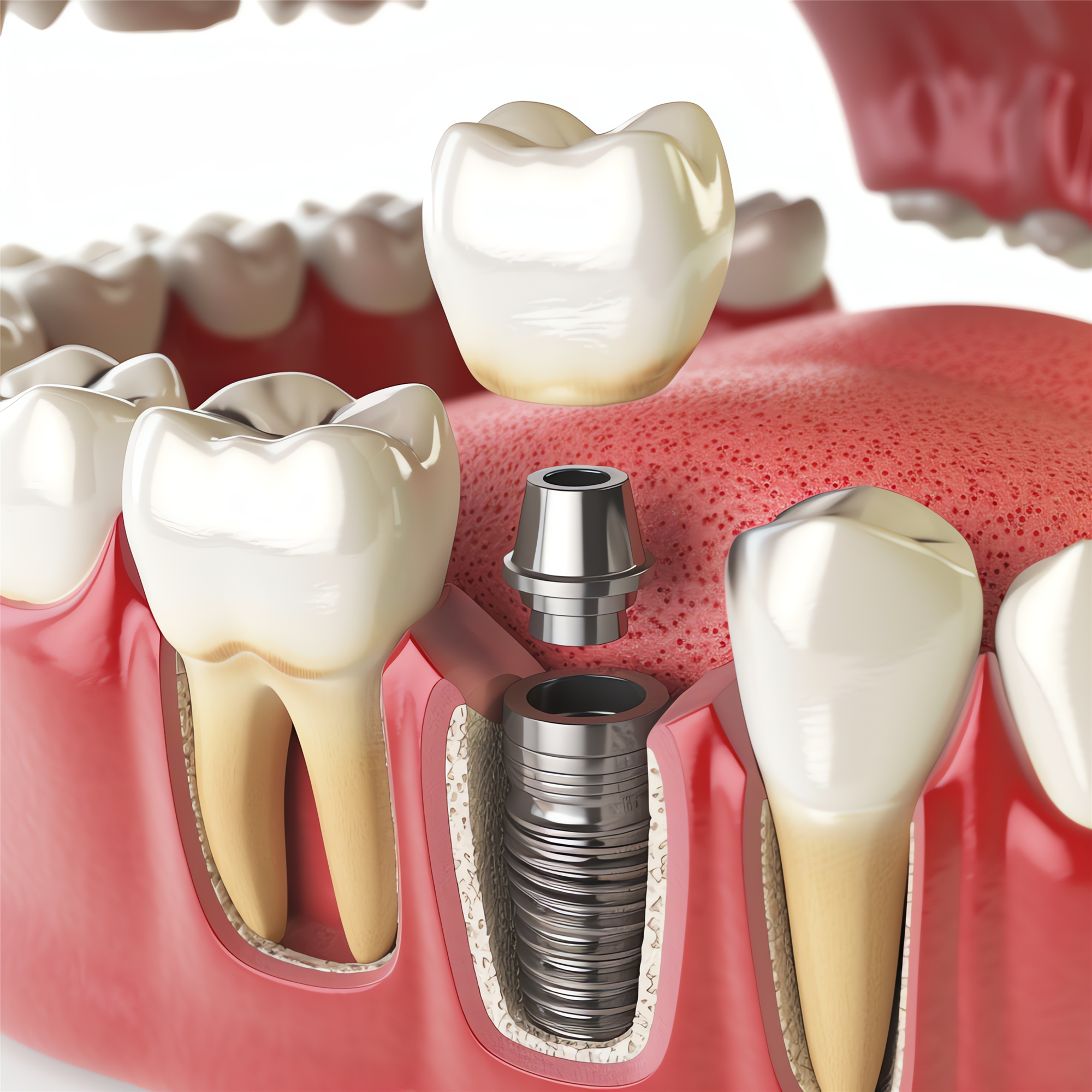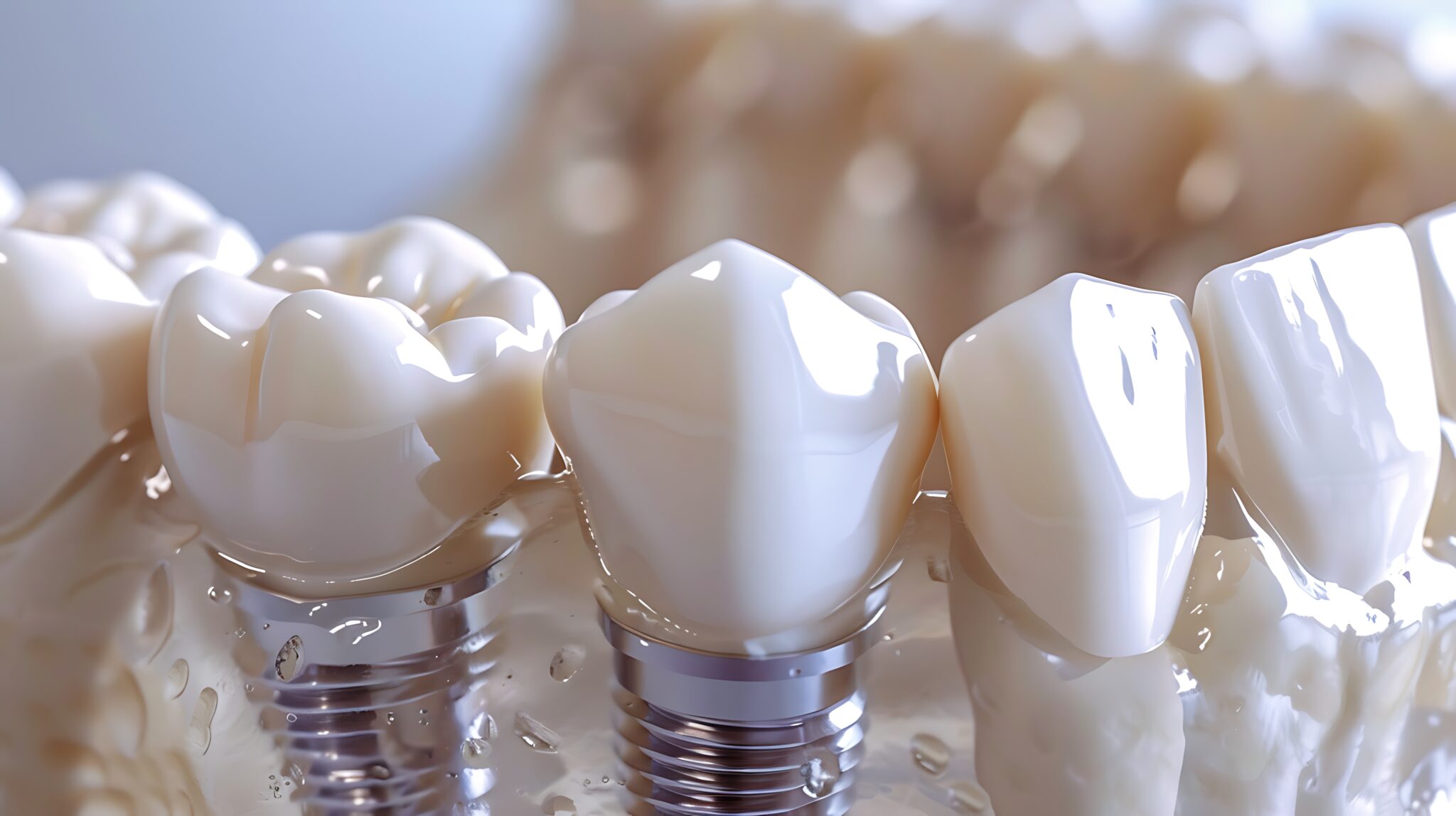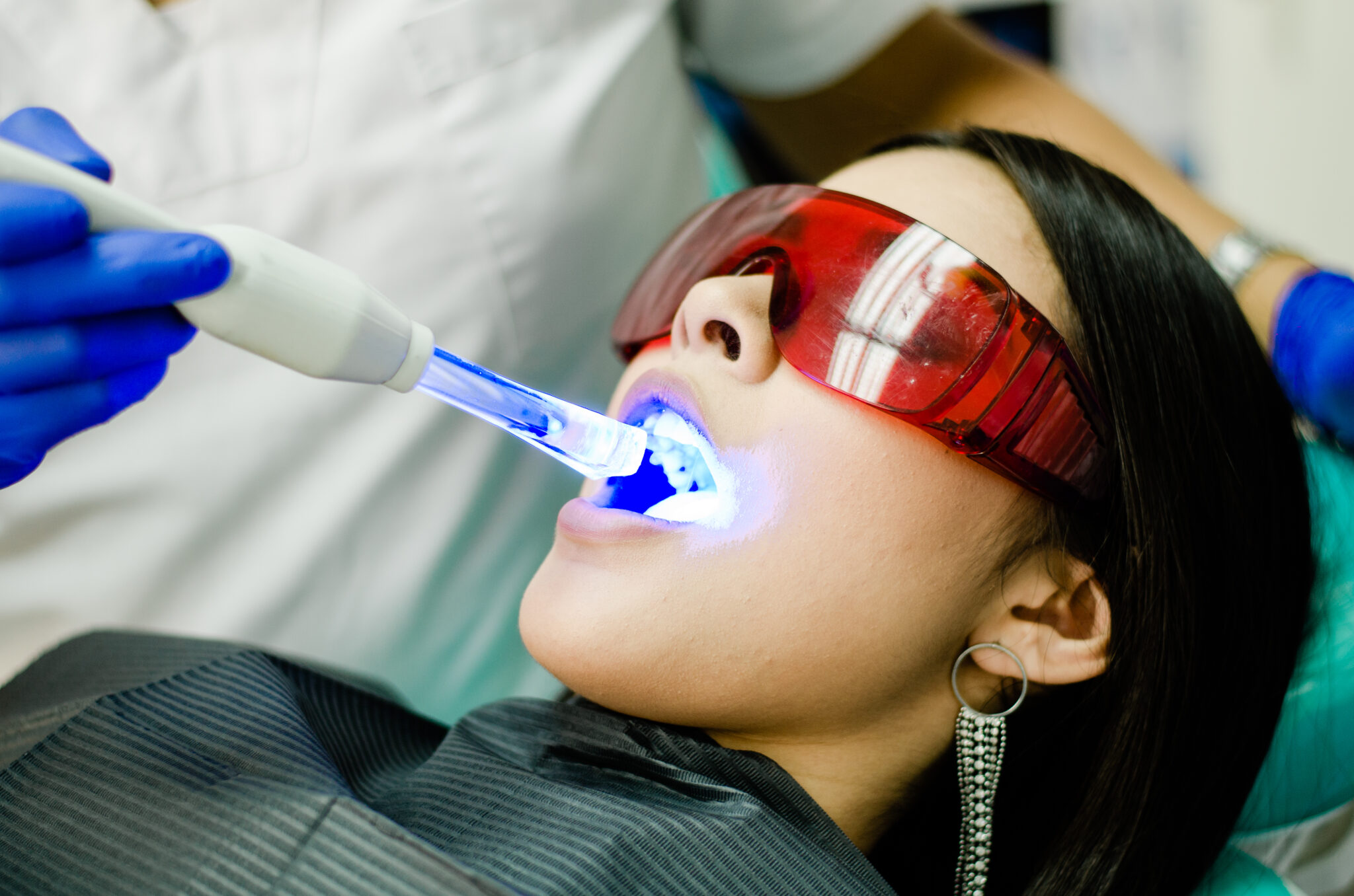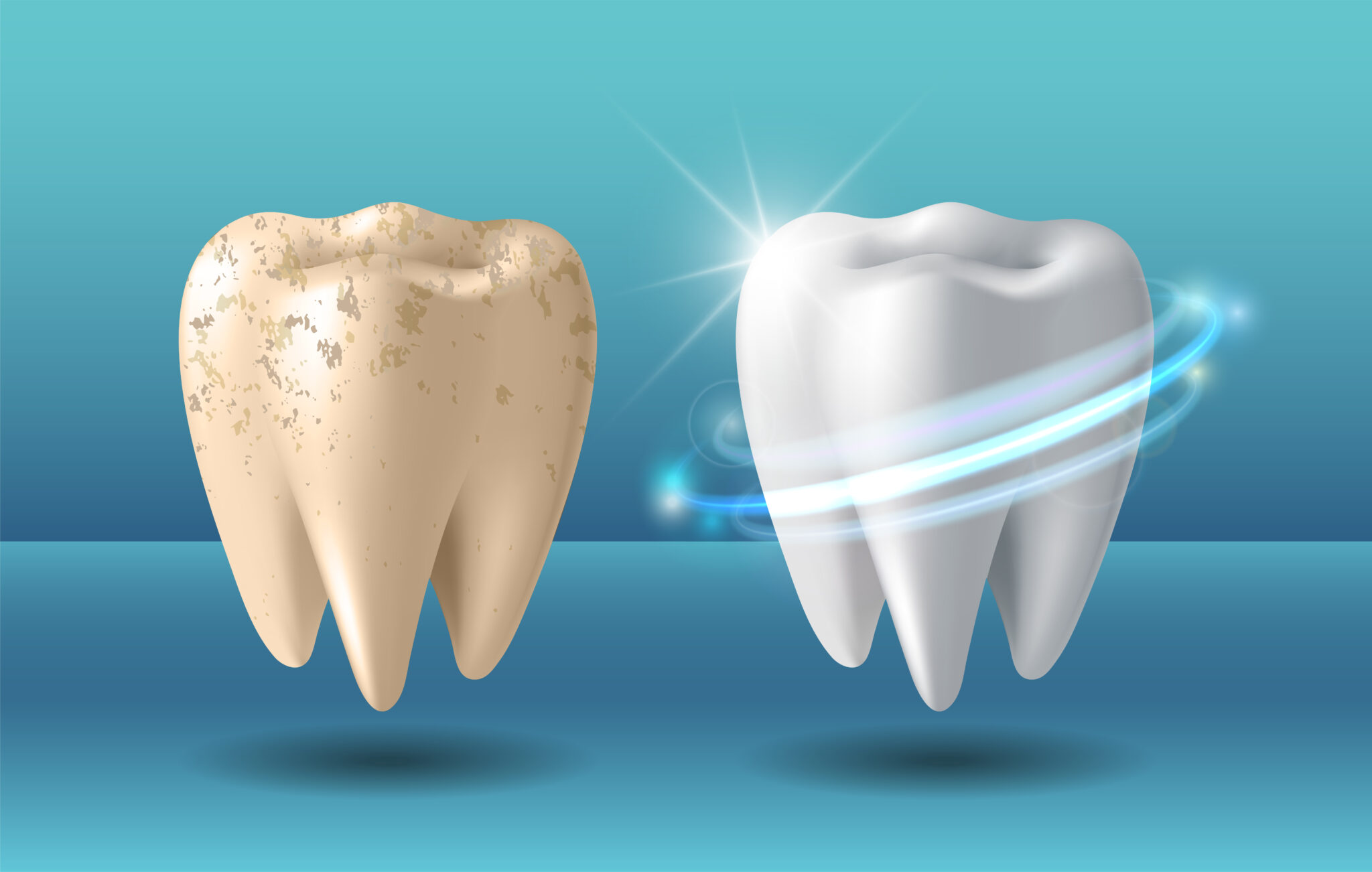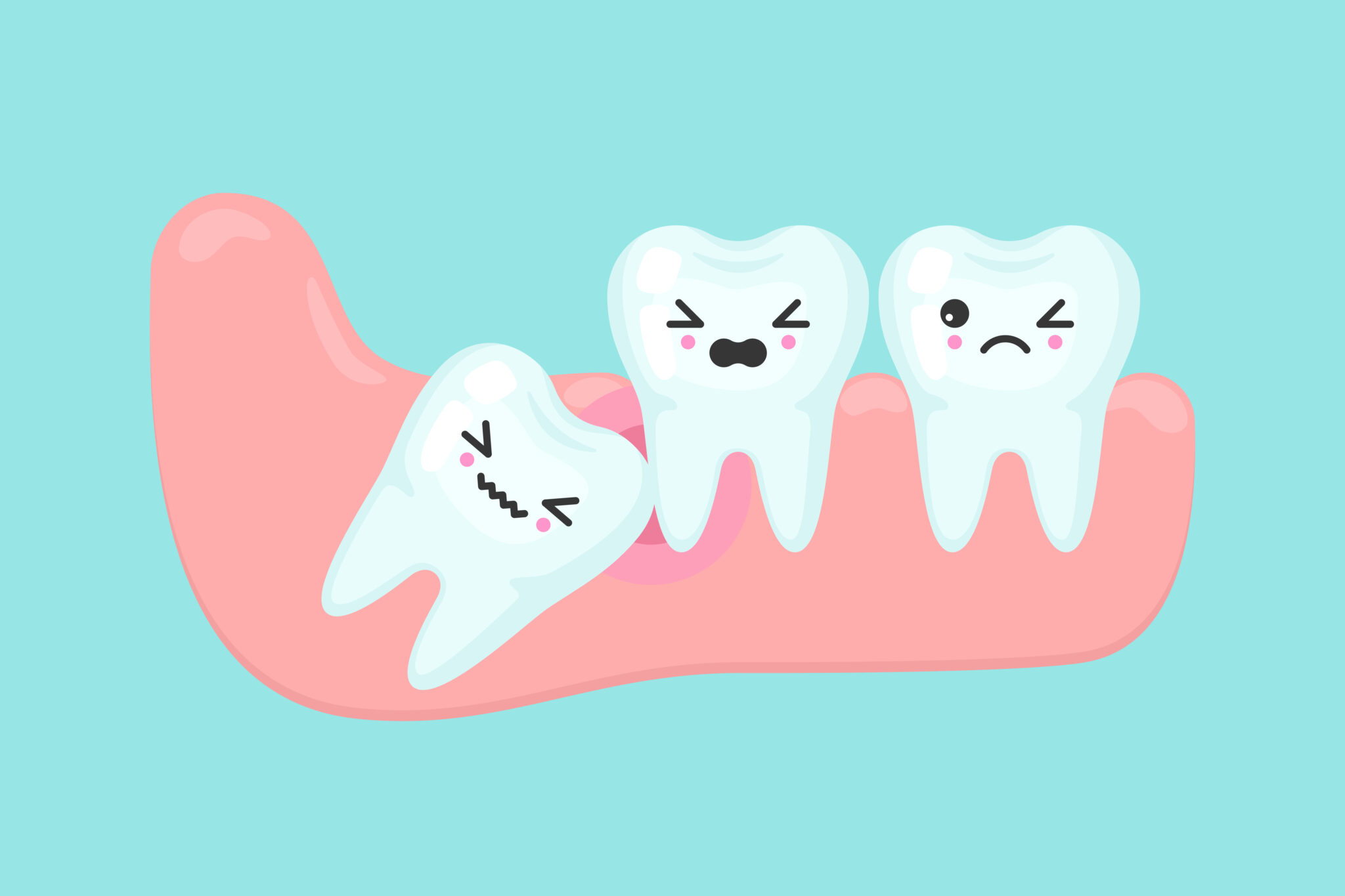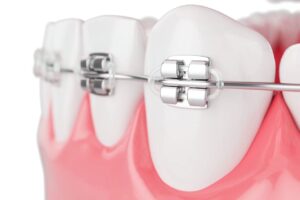Pool Season Alert: How Chlorine Affects Tooth Enamel & What to Watch For As summer begins, more patients head to the pool—but frequent swimming in chlorinated water can affect your oral health. Chlorine, while essential for keeping pools clean, can alter the pH balance of water. Over time, this may contribute to enamel erosion, staining, or increased tooth sensitivity. What should you watch for? Yellowing or stained teeth, especially in children who swim often Sensitivity to hot or cold foods A dry, rough feeling on the surface of your teeth At our clinic, we help swimmers protect their smiles: Preventive fluoride treatments strengthen enamel against acidic exposure. Regular cleanings help remove buildup and catch early enamel wear. If you or your child are avid swimmers, a quick dental exam can go a long way in preventing long-term damage. Let us help you keep your teeth healthy all season long. Schedule a checkup today to make sure your smile stays strong—on land and in the water. Graceful Smiles Dentistry in 7770 W Grand Pkwy S Ste E, Richmond, TX 77406 provide best dental service for you.If you have any questions about dental health, please contact us Want more information about dentist near me, veneers, pedia dentist near me, pediatric dentist near me, deltadental, orthodontist, root canal, met dental, pediatric dentist, richmond dental,etc. Please visit our website.
 Admin
Admin
The Ultimate Refresh: Why Professional Teeth Cleaning Matters
Regular brushing and flossing are essential, but they can’t replace the deep clean you get from a professional dental visit. Here’s why routine teeth cleaning is crucial for your oral health:
Prevents Gum Disease and Cavities – Plaque buildup can lead to gum inflammation and decay. Professional cleanings remove hardened tartar, reducing your risk of cavities and gum disease.
Brightens Your Smile – Stains from coffee, tea, and everyday foods can dull your teeth. A professional cleaning polishes away surface stains, leaving your smile fresher and whiter.
Early Detection of Dental Issues – Your dentist can spot early signs of tooth decay, gum disease, or other concerns before they become serious problems, saving you time, money, and discomfort.
A professional teeth cleaning isn’t just about aesthetics—it’s a key step in maintaining long-term oral health. Schedule your next appointment and give your smile the refresh it deserves!
Graceful Smiles Dentistry in 7770 W Grand Pkwy S, Ste E Richmond, TX 77406 provide best dental service for you.If you have any questions about dental health, please contact us. Want more information about dentist close to me,dentist near me, Dental pain emergency ,Urgent dental care,Good dentist near me,Implant,Affordable dental implant,Affordable denture ,dental dams,etc. Please browse other content.
Am I a Candidate for Dental Implants?
Assessing Your Oral Health. Key factors include:
1. Overall Health
Chronic conditions like uncontrolled diabetes or connective tissue disorders can impede healing and affect implant success.
2. Oral Health
Healthy gums and sufficient bone density are crucial for supporting implants. Severe periodontal disease or significant bone loss may require additional treatments before implant placement.
3. Lifestyle Choices
Habits such as smoking can negatively impact healing and increase the risk of implant failure. Commitment to maintaining good oral hygiene is essential for long-term success.
4. Bone Density
Adequate bone density ensures the implant’s stability. Insufficient bone may necessitate procedures like bone grafting to create a solid foundation.
5. Medications
Certain medications, especially bisphosphonates used for osteoporosis, can influence bone healing and implant integration.
Call our office to discuss your dental implant options.
Illuminating Your Smile: The Hidden Details of Teeth Whitening at Your Dental Clinic
1. Customized Treatment Plans
Dentists evaluate your oral health and tailor whitening treatments to your specific needs. Whether you’re dealing with deep stains or surface discoloration, a customized plan ensures safe and effective results.
2. Superior Whitening Technology
Professional treatments use advanced whitening systems, such as laser or light-activated procedures, that deliver faster, more dramatic results compared to at-home products. The whitening agents are stronger but safe for your enamel.
3. Long-Lasting Results with Professional Care
Regular cleanings and professional touch-ups help maintain your bright smile for a longer time. Your dentist can also advise on how to avoid future staining, helping you preserve the results.
Choosing professional teeth whitening at a dental clinic not only provides more immediate and reliable results but also offers personalized care and guidance for the best long-term outcomes.
How Dental Implants Prevent Bone Loss and Preserve Your Jawline
Tooth loss doesn’t just affect your smile—it also leads to bone loss in the jaw, which can change your facial structure over time.
1. Stimulating Bone Growth
Natural tooth roots stimulate the jawbone, keeping it strong. When a tooth is lost, the lack of stimulation causes bone resorption. Dental implants act as artificial roots, restoring stimulation and preventing bone loss.
2. Maintaining Facial Structure
Without proper support, bone loss can lead to sunken cheeks and premature aging. Implants provide stability, helping maintain a youthful facial appearance and natural jawline contour.
3. Long-Term Jaw Health
Unlike dentures, which can accelerate bone loss by not integrating with the jaw, implants fuse with the bone through osseointegration. This ensures long-term strength and function, reducing the risk of further tooth loss.
By mimicking natural teeth, dental implants offer more than just aesthetics—they protect your jawbone, maintain facial structure, and support lifelong oral health.
Graceful Smiles Dentistry in 7770 W Grand Pkwy S, Ste E Richmond, TX 77406 provide best dental service for you.If you have any questions about dental health, please contact us. Want more information about dentist close to me,dentist near me, Dental pain emergency ,Urgent dental care,Good dentist near me,Implant,Affordable dental implant,Affordable denture ,dental dams,etc. Please browse other content.
From Damaged to Dazzling: How Crowns Transform Your Teeth
Dental crowns are a versatile solution for restoring damaged teeth while enhancing their appearance. Here’s how they make a difference:
Restores Tooth Strength
Crowns cover and protect teeth that are cracked, decayed, or weakened, preventing further damage. They restore functionality, allowing you to chew and speak with ease.
Improves Appearance
Made from materials like porcelain or ceramic, crowns are designed to match the color and shape of your natural teeth. They seamlessly blend into your smile, enhancing its overall aesthetic.
Boosts Longevity
With proper care, dental crowns can last for 10-15 years or longer. They not only restore the tooth’s structure but also provide long-term protection against wear and tear.
Dental crowns do more than repair damage—they bring back the strength, function, and beauty of your smile, transforming your teeth from damaged to dazzling.
Teeth Whitening Explained: Tips, Techniques, and Long-Lasting Results
A brighter smile can boost your confidence, but understanding teeth whitening is key to achieving lasting results. Here’s what you need to know:
Choosing the Right Technique
Professional whitening treatments, like in-office bleaching or custom take-home trays, offer effective and safe results.
Maintaining Long-Lasting Results
Avoid stain-causing foods and drinks like coffee, tea, and red wine. Rinse your mouth or brush shortly after consuming them to prevent discoloration. Using whitening toothpaste can also help maintain your results.
Tips for Safe Whitening
Always consult your dentist before starting any whitening treatment, especially if you have sensitive teeth or dental restorations. Professional supervision ensures safe application and minimizes potential side effects.
Teeth whitening isn’t one-size-fits-all, but with the right approach and care, you can enjoy a radiant smile that lasts!
Illuminate Your Smile: Advanced Teeth Whitening Solutions
Here are the top three options to consider:
1. In-Office Whitening Treatments
For quick and professional results, in-office whitening is highly effective. Dentists use high-concentration bleaching agents and may combine them with LED lights, whitening teeth several shades in just one visit.
2. Enamel Microabrasion
For stains on the enamel’s surface, enamel microabrasion can be a great solution. Dentists use an abrasive solution to gently polish away discoloration, revealing whiter enamel beneath. This method is especially effective for stains caused by fluoride or minor enamel irregularities.
3. Porcelain Veneers
If stubborn stains don’t respond to whitening, veneers offer a long-lasting solution. These custom-made shells cover the teeth’s front surface, providing a permanently bright and polished look, ideal for deep discoloration.
With advanced whitening solutions, you’re just a few steps away from a more radiant smile!
Graceful Smiles Dentistry in 7770 W Grand Pkwy S Ste E, Richmond, TX 77406 provide best dental service for you.If you have any questions about dental health, please contact usWant more information about Teeth whitening,Emergency dental service,dentist near me,invisalign,veneers,implants,snap-on-smile,elite dentistry,dental bridge,root canal,,etc. Please browse other content.
The Science Behind Dental Implants
1. Osseointegration:
The phenomenon of osseointegration, where the implant fuses with the jawbone, creating a stable and durable foundation that mimics the natural tooth root.
2. Biocompatible Materials:
The use of biocompatible materials, such as titanium, that promote compatibility with the body, preventing rejection and ensuring long-term stability.
3. Surgical Precision:
The surgical precision involved in implant placement, guided by advanced imaging and planning techniques to achieve optimal positioning and alignment.
4. Bone Remodeling:
Explore how dental implants stimulate bone remodeling, preventing bone loss commonly associated with missing teeth and maintaining facial structure.
5. Prosthetic Integration:
Understand the integration of prosthetic components, carefully designed to match the natural aesthetics of surrounding teeth, ensuring a seamless and natural-looking smile.
This overview unveils the the Science Behind Dental Implants.
Graceful Smiles Dentistry in 7770 W Grand Pkwy S Ste E, Richmond, TX 77406 provide best dental service for you.If you have any questions about dental health, please contact usWant more information about Teeth whitening,Emergency dental service,dentist near me,invisalign,veneers,implants,snap-on-smile,elite dentistry,dental bridge,root canal,,etc. Please browse other content.
Wisdom Teeth Removal: What to Expect After Surgery
Wisdom teeth removal is a common procedure, but knowing what to expect afterward can help ease recovery. Here are key points:
Swelling and Discomfort
Some swelling and discomfort are normal in the first few days after surgery. Applying ice packs and taking prescribed pain medications can help manage this. The swelling typically peaks within 48 hours and then starts to decrease.
Diet and Activity
Stick to soft foods like soups, yogurt, and smoothies for the first few days. Avoid hot, spicy, or crunchy foods that could irritate the extraction site. Rest is crucial, so avoid strenuous activity for at least a week.
Healing and Aftercare
Your dentist will provide specific aftercare instructions, including how to clean the area gently to prevent infection. It’s essential to avoid smoking, using straws, or any activity that could dislodge the blood clot, which can lead to dry socket.
Following these steps can help ensure a smooth and quick recovery after wisdom teeth removal.
Graceful Smiles Dentistry in 7770 W Grand Pkwy S Ste E, Richmond, TX 77406 provide best dental service for you.If you have any questions about dental health, please contact usWant more information about Teeth whitening,Emergency dental service,dentist near me,invisalign,veneers,implants,snap-on-smile,elite dentistry,dental bridge,root canal,,etc. Please browse other content.
Everything You Need to Know About Root Canal Treatment: A Step-by-Step Guide
Root canal treatment is a common procedure used to save a tooth that’s badly infected or decayed. Here’s a quick overview of the process:
Diagnosis and Preparation: Your dentist will first assess the tooth using X-rays to confirm the infection and extent of damage. Once determined, local anesthesia is applied to numb the area, ensuring a pain-free experience.
Cleaning and Shaping: The dentist then creates a small opening in the tooth to remove the infected pulp. After cleaning the inside, the canals are carefully shaped and disinfected to prevent further infection.
Filling and Sealing: The canals are filled with a biocompatible material, usually gutta-percha, to restore structure. The tooth is sealed, and often, a crown is placed on top for added protection and durability.
With proper care, a root canal-treated tooth can last a lifetime!
Graceful Smiles Dentistry in 7770 W Grand Pkwy S, Ste E Richmond, TX 77406 provide best dental service for you.If you have any questions about dental health, please contact us Want more information about dentist close to me,24 hour emergency dentist,abscessed tooth,aetna dental,affordable dentistry,affordable dentures near me,all on 4 dental implants,ameritas dental,best endodontist near me,bone graft dental,etc.Please browse other content.
The Vital Link: How Regular Dental Checkups Support Your Overall Health
Think of your mouth as the gateway to your body’s well-being. Regular dental checkups do more than just keep your smile looking great—they play a crucial role in maintaining your overall health. Here’s why:
Early Detection of Health Issues:
During routine dental visits, your dentist isn’t just checking for cavities; they’re also on the lookout for signs of broader health issues.
Conditions like diabetes, heart disease, and even certain cancers can manifest early warning signs in the mouth, allowing for timely intervention.
Gum Health and Heart Health:
Did you know that your gums and heart are surprisingly connected? Gum disease, if left untreated, can lead to chronic inflammation, which is linked to an increased risk of heart disease.
Regular checkups help keep your gums healthy, thereby supporting your cardiovascular system.
Diabetes Management:
People with diabetes are more prone to gum disease, and conversely, severe gum disease can make it harder to control blood sugar levels.
By keeping up with dental appointments, you can better manage your oral health and, in turn, help control your diabetes.
Preventing Infections:
Oral infections can spread beyond your mouth, potentially leading to serious complications. Regular checkups help prevent these infections from taking root.
Your dentist can address issues like abscesses or severe decay before they turn into something more serious, protecting your overall health.
In summary, regular dental checkups are more than just a routine—they’re a vital part of maintaining your overall health. By detecting early signs of health issues, supporting heart health, aiding in diabetes management, and preventing infections, these appointments help keep both your smile and your body in tip-top shape. So, think of that dental chair as a throne where you protect not just your teeth, but your entire well-being!
Graceful Smiles Dentistry in 7770 W Grand Pkwy S Ste E, Richmond, TX 77406 provide best dental service for you.If you have any questions about dental health, please contact usWant more information about Teeth whitening,Emergency dental service,dentist near me,invisalign,veneers,implants,snap-on-smile,elite dentistry,dental bridge,root canal,,etc. Please browse other content.

